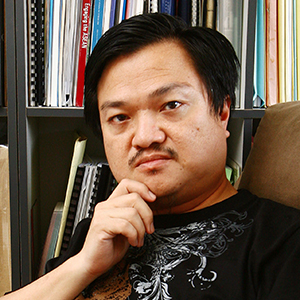Long and painful decline of the NEP state
The Achilles’ heel for the NEP state was, in management’s term, the agency problem. The person mandated to do something – the agent – does not act in the best interest of the person who places the mandate – the principal – but rather pursues his/her own interest.
If the NEP state elite – from politicians, bureaucrats to state enterprise managers – have no private interests but only pursue the Malay agenda, then 20 years would be enough for the state to empower all marginalised Malays and groom all talented Malays.
And the lifting of the Malays would induce pluralism and open up the political space for the NEP state to be phased out.
But the NEP state is virtually a one-party state. State partiality to the Malays (vis-à-vis the non-Malays) does not mean state impartiality to all Malays. Rather, it means partiality to Umno Malays, more precisely, those with the right connection and family ties.
To benefit maximally from the NEP state, a Malay needs not only to support Umno in the general election, but also to support the right factions in Umno elections. Family ties matters. Old boy fraternity matters. Business partnership matters.
Like in China’s one-party state, “guanxi” (connection) is an important currency for charting political and economic fortunes in Umno.
This leads to three inherent problems threatening the long-term survival of the NEP state.
First, it weakens the nation’s competitiveness with its failure in promoting meritocracy and curbing rent-seeking. Plagued by cronyism, the Malays simply cannot build up their strength to fill up the void left by the non-Malays.
Second, it replaces inter-ethnic inequality between the Malays and the non-Malays with intra-ethnic inequality within the Malays, providing the social basis for the political division of Malays.
Third, the factionalism in Umno leads to schism at times of economic crisis, producing new parties like Tengku Razaleigh Hamzah’s Parti Semangat 46 (S46) in 1990 and Datuk Seri Anwar Ibrahim’s Parti Keadilan Nasional/Rakyat in 1999.
These parties then helped bring together PAS and DAP, the two grand opposition parties with rather opposite programmes.
Combining these three factors, the NEP state has been rigorously challenged in 1990, 1999, 2008 and 2013 in the span of six elections. If Pakatan Rakyat is not broken before GE14, it would be the fifth challenge.
It would be wishful thinking for anyone to think that Umno will rule forever and Dr Mahathir can be the father of a future prime minister like Tun Razak.
But the ending of the NEP state puts too much at stake. It does not just trouble Umno elite and dynasties. Many ordinary Malays – middle class and working class – conditioned and convinced by the NEP state that they cannot live without it are also worried.
If more than four decades of NEP state cannot lift the Malays effectively, what will happen if the non-Malays are treated more fairly once Pakatan Rakyat comes into power? Will Malays not be worse off?
Putting the foot down that Malay-Muslims control this country hence becomes important for the Malays. The rise of Perkasa and now more powerful Isma is a reflection of this mentality. Umno’s stern stand on the “Allah” issue can be understood in this light.
By harping on the Malays’ sense of insecurity, the ultra-right outsourced agents of Umno’s ethno-nationalism has been successfully pushing PAS – more precisely, its conservative action – to outdo Umno in playing to the gallery.
This explains the revival of the hudud agenda and the obsession to try to ban everything from Valentine’s Day to Oktoberfest.
The backlash against DAP and PKR leaders joining the fest has less to do with morality than the frustration of seeing the non-Malays’ defiance of PAS.
If it had been driven by morality, why did PAS invite three Chinese supporters to drink cans of beers in its operation room in Wakaf Tapai in Marang (Datuk Seri Abdul Hadi Awang’s constituency) during the 2008 elections? Where were today’s protesters then?
It’s time we face the elephant in the room. Until the Malays can overcome their anxiety on how they may fare in a post-NEP Malaysia, the non-Malays will see more protests in the name of “sensitivity”.
It’s time we think deep on an alternative to a flawed solution – state partiality – to a real problem – socio-economic inequality. – October 20, 2014.
* Part I appeared yesterday.
* This is the personal opinion of the writer or publication and does not necessarily represent the views of The Malaysian Insider.


Comments
Please refrain from nicknames or comments of a racist, sexist, personal, vulgar or derogatory nature, or you may risk being blocked from commenting in our website. We encourage commenters to use their real names as their username. As comments are moderated, they may not appear immediately or even on the same day you posted them. We also reserve the right to delete off-topic comments